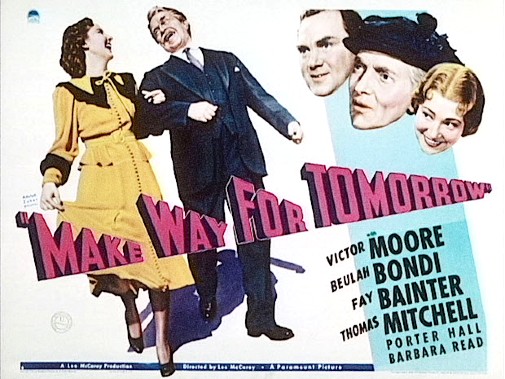Robert here w/ Distant Relatives, exploring the connections between one classic and one contemporary film.
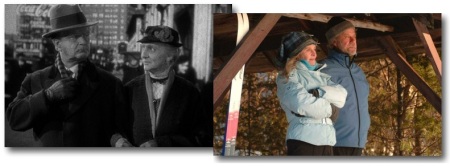 Like your dear old Ma and Pa
Like your dear old Ma and Pa
Since it's Thanksgiving week and many of us are spending time with family, an activity that pop culture tell us should leave us mostly frustrated and annoyed, I thought I'd present an entry that might get us thinking about our parents or grandparents. It's the film Errol Morris has dubbed "the most depressing movie ever made, providing reassurance that everything will definitely end badly" and one if its close descendants. Films about aging people are a rare breed. Hollywood doesn't much care for stories about anyone over the age of thirty-five. When on rare occassion it does, they're almost definitely stories about "old people" whose defining characteristic is that they're old. If they're romances, they're about old people coming together and finding love. There's a cute "even grandma can fall in love" sentiment to it that presents a happy ending. Nobody likes movies with sad endings.
Away From Her tells the story of Grant and Fiona (Gordon Pinsent and Julie Christie), a metropolitan couple, many years into a rocky though ultimately happy marraige. When Fiona is diagonised with Alzheimer's, their active and cultured existence is traded for one of long parting, nursing home visits, and the promise of a long hard trip into a black hole with no light on the other side. Make Way For Tomorrow follows Barkley and Lucy Cooper (Victor Moore and Beulah Bondi) an elderly couple who are split up to live among different children when their home is forclosed on. After time, their presence becomes a nuisance in their childrens' homes and their residences are jumbled again, Barkley all the way to California, Lucy to a retirement home, but not until they spend one final romantic afternoon together. And if that summary doesn't break your heart into a thousand little pieces, you should see the movies.
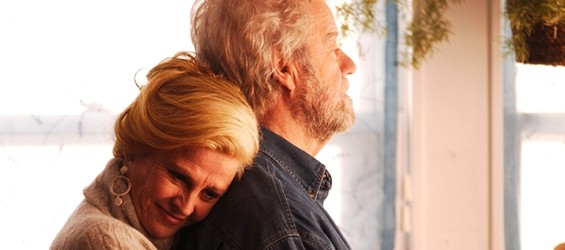
Such sweet sorrow
While it's understandable that no one want's to make a film about the end of a relationship at the end of life, it's interesting how much more effective it is than standard industry fare. The couples in Away From Her and Make Way For Tomorrow have real weight behind their relationships. They have a history and it shows. In movies where a young boy meets a young girl, there's no weight of time. The act in love has to be presented not as a process but as a moment, one that's magical but ethereal. But when boy loses girl, it doesn't always feel like that big of a deal. When Grant and Fiona and Barkley and Lucy lose each other, it really hurts. Tellingly, in both films, our characters present a positive attitude, though clearly it's a front. They talk often of how things turned out okay, or will, or could. They talk about how their situations are manageable, when they know better. In moments of honesty they find themselves hurt yet composed. Fiona tells Grant that if he doesn't go agreeably she may cry so hard she never stops. When told by her granddaughter to "face facts" Lucy explains that the only joy she gets anymore is pretending there aren't any facts to face.
Portraying them as dignified against insurmountable odds, you might get the idea that these films sentimentalize their characters of a certain age. You'd be wrong. All four of these people are flawed. Fiona is perhaps a bit too eager to transition to the nursing home against Grant's wishes, Grant too ambivalent toward the hurt he's caused Fiona in the past. Barkley is too much of a push-over, and Lucy pesters her children and granddaughter more that she should when she lives with them. It's true. You probably wouldn't want to live with her either. And while the film could easily paint the younger generation as villainous, it portrays a reality more complex than that.
It's fascinating that Away From Her feels no need to introduce children into the equation, where the children in Make Way For Tomorrow play a significant role. It's almost as if Make Way For Tomorrow is saying "these could be your parents one day," while Away From Her is saying "this could be you one day." Both films start their characters on the path to an unhappy ending, but avoid ending on any puncutation as definite or cliched as a death. Both films end on an elipses. You could infer a "be thankful for what you've got while you've got it" message, and indeed the lovers in these films are genuinely happy in each other's company until they're parted. But finding any such silver lining, any joyousness to take away from the experience would be futile. These are two brilliant films about how everything will definitely end badly. No wonder Hollywood doesn't make them like this.
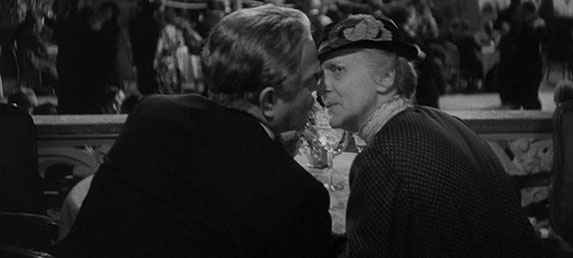
Other Cinematic Relatives: Tokyo Story (1953), On Golden Pond (1981), Iris (2001)
 Thursday, September 16, 2021 at 12:54PM
Thursday, September 16, 2021 at 12:54PM 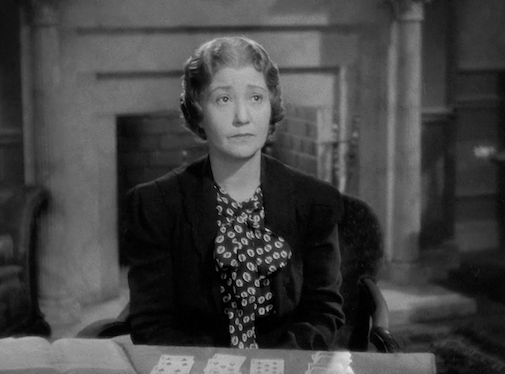
 1937,
1937,  Fay Bainter,
Fay Bainter,  Leo McCarey,
Leo McCarey,  Make Way For Tomorrow
Make Way For Tomorrow 


